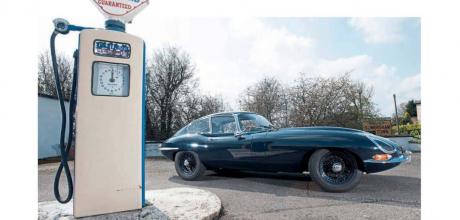Fuel costs

There’s no denying that it has never been so expensive to fill up. The mainstream media do not appear to be interviewing taxi drivers and hauliers, who must be spending a colossal amount of extra money on fuel.
My average fill-up costs me an extra £20-£30 in some cases, especially with the introduction of E10 in standard unleaded petrol, so I’ve had to switch to the more expensive E5-rated super unleaded. The price at the pump as I write for standard unleaded petrol is 147.28p and diesel 150.64p. And over 55 percent of that is accounted for by duty, VAT and environmental taxes/fees (the latter is less than half-a-pence per litre, so we can hardly feel we’re doing our bit).
What this means for many owners of modern Jaguar saloons is that a full tank of fuel can easily cost more than £100, especially if you buy 70 litres (an X250-generation XF, for example, has a 74-litre tank). If you think that’s painful, anyone with an older petrol engine model, or a high-performance modern petrol engine, who wants to only use a good-quality higher-octane super unleaded petrol can pay an extra 10-15 pence above standard unleaded. A similar 70 litres in an XK8’s 75-litre tank would cost £111.05 based on a price of 158.65p per litre of super unleaded petrol.
However, according to www.statista.com, the price of super unleaded dropped to as low as 122.7p per litre in June 2020, which means 70 litres would have then cost £85.89: £25.16 less to fill up. I’m often tempted to buy a V8-powered S-TYPE, but with a combined fuel consumption of around 23mpg, I’d be using it sparingly, especially on super unleaded. Similarly, I’ve been looking at the Mk 2 and equivalent Daimler, but fuel consumption is just as poor. I almost feel sorry for anyone with a V12.
However, one aspect of these rising fuel costs is environmental. We’re being encouraged to switch to electric cars, despite all the arguments for and against concerning battery manufacturing (particularly the mining of minerals), range, charge points and green electricity production. Consequently, petrol and diesel are fast becoming sinful, and prices carry on increasing because we ‘shouldn’t’ be using them – I’m not sure what the answer is for all the truck drivers. Rising fuel prices spell disaster for the UK’s inflation rate, which was a staggering 4.2 percent in November last year, the most it has been in a decade.
It’s only a matter of time before fuel costs have a knock-on effect on delivery costs and the eventual price of those goods and services that help account for inflation. The Bank of England may then be forced to raise interest rates in an attempt to curb inflation and that opens a new can of worms for borrowing problems, investors moving their money out of housing and classic cars into long-term savings and more.
Then again, it may well be business as usual, just like it is at present, where few people seem to notice.
PETROL AND DIESEL ARE FAST BECOMING SINFUL, AND PRICES CARRY ON INCREASING BECAUSE WE ‘SHOULDN’T’ BE USING THEM

